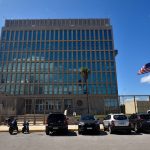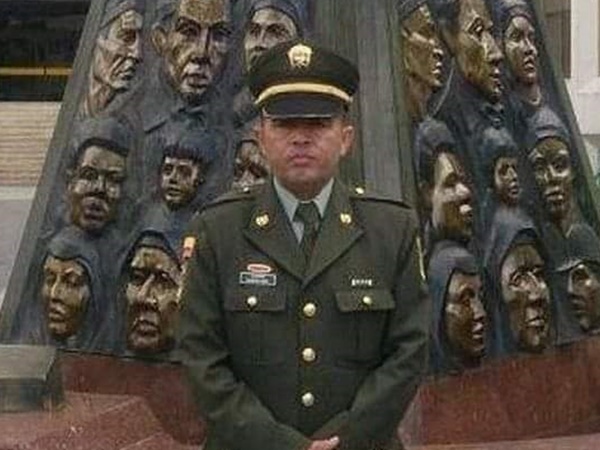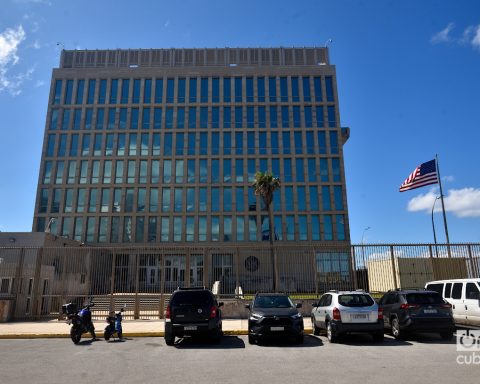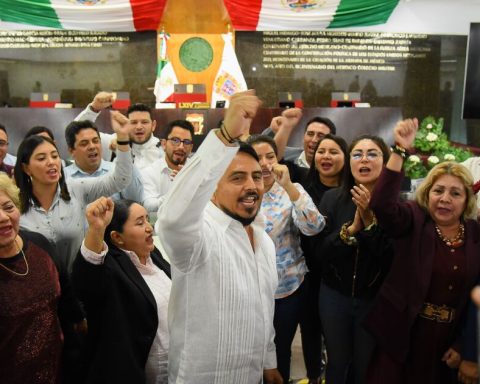Without the transversal support of its parliamentary base, the ruling party is going through a scenario of uncertainty these days in relation to the government’s response to the acts of violence that continue to take place in different parts of the country, where the Mapuche area continues to be the main focus of conflict. The Intermediate State of Exception proposal responds, in this sense, to a conjunctural reaction that has not been able to align the different parties that make up its coalition, while the opposition demands to re-establish militarization in the regions of La Araucanía and Biobío, under the conditions that the current Constitution proposes.
A measure that considers three key points, which differentiate it from the State of Constitutional Exception to dry and that, first of all, considers the existence of a civil authority in charge, does not limit the freedoms or rights of the people and establishes that the President can be extended for two periods of 15 days, without the need to resort to Congress, after which it must go through the filter of the Legislative Power.
Who is in charge of the negotiations to advance the legislative agenda of La Moneda in Parliament, the minister of the Segpres, Giorgio Jackson, said in an interview with The Mercury of Valparaiso that “that is one of the complexities of situations like this, where someone could say why they don’t apply them immediately. Well, it is because we have to have certain balances that allow that when there is a person in the Government who thinks differently from us, they cannot occupy it in an indiscriminate manner, as has happened in many countries in our region.
In this sense, the plan to require military forces to protect critical infrastructure in certain areas of the country has the support of Democratic Socialism (Socialist Party, Liberal Party, PPD and Radical Party), but I Approve Dignity still have objections, punctually in the Communist Party, Humanist Action and some sectors of the Broad Front. A political and ideological discussion that has been trapped, forcing the Government to request the postponement of the session scheduled for Monday of the Mixed Commission, where it sought to advance in the processing of the critical infrastructure project that responds to an indication to the proposal of Senators Kenneth Pugh (RN) and Carmen Gloria Aravena.
From La Moneda they requested the suspension of the instance, arguing “reasons of State”, in order to elucidate all the doubts that cause conflict within the ruling party and, in this way, “advance firmly” in the search for the votes that they still remain for a constitutional reform that requires three-fifths of Congress for its approval. In the event that the talks are not fruitful, the Government does not rule out restoring the State of Constitutional Exception, which implies the total involvement of the military forces, without middle terms. This is a measure that is not supported by the parliamentarians of Approve Dignity, who have become one of the main obstacles to the political leadership of President Boric and which has led him in recent days to choose not to give interviews or participate public activities or press conferences.
After the President himself made transparent a conversation held with the deputy and president of the UDI, Javier Macaya, on the urgency of achieving a transversal political consensus on security matters, the first questions began to arise about the contents that said agreement should have, where from the beginning the militarization of the southern part of the country has been one of the issues that generates the greatest division. This is one of the conditions put on the table by the opposition to sit down to dialogue with a government that has not been able to align the parties of its own coalition, where the true effectiveness of the States of Exception as a State response to acts of violence in the regions of La Araucanía and Biobío.
One of the connoisseurs of this proposal, the PPD senator for La Araucanía, Jaime Quintana, after meeting with President Boric last Friday in La Moneda, pointed out that “the situation of insecurity that the country is experiencing is not something that has started today , where the 8-month State of Exception decreed by former President Piñera brought more insecurity. There is a false sense of security that has been able to leave the State of Exception and that is not real. In communes like Carahue, where there was no violence 8 years ago, today there are acts of violence almost daily.”
In the search for consensus, from the Ministry of the Interior they give a sign of calm, assuring that the 15-day period is not over yet, and that they hope to reach an agreement that accounts for a final decision, while the regional authorities demand immediate responses. to a complex situation that causes inconveniences in the Executive and that is sought to be addressed in an integral manner, where – they assure – more than one action could be required.
The desperate call of the regions
From the areas affected by the increasing situation of violence, they make an urgent call to the central authorities to respond to a feeling of insecurity, which – they affirm – is unsustainable. The governors of the Los Ríos, La Araucanía and Biobío regions have shown their willingness to collaborate and respond to President Gabriel Boric’s call for a possible transversal agreement on security matters, urging the Government to assume its responsibility to occupy all the tools necessary to ensure peace.
In the search for immediate answers, the governor of the Araucanía Region, Luciano Rivas, pointed out that the increase in violence after the last State of Exception decreed in the area corresponds to 170%, for which he believes that “the Government You have the obligation to use all the tools you have in your hand.” Likewise, he says he agrees with the proposal to safeguard critical facilities, but considers that it is “a project of three or four months, where we have a problem that is today.”
The regional authorities urge Parliament to honor the commitment signed by the Executive in matters of security. In this sense, the governor of the Biobío Region, Rodrigo Díaz, adds that the “State must obligatorily provide security, and if the people of the Government base do not agree, then we have no choice but to advance in the State of Constitutional Exception. And, furthermore, we want progress to be made in all matters related to political action and political dialogue, because, at least in Biobío, beyond the power point of 5 sheets that I had the opportunity to see in the Senate, nothing has been advanced”.
Security and political action, these are the main demands of those who represent the regions that have been most affected by the escalation of violence and the problems of the central authorities to achieve the necessary space for dialogue in order to face such acts of violence. violence. A situation that complicates a Government whose story has been affected by the situation, and which led the President to announce, a few days ago, unexpectedly, a transversal agreement on security that has been trapped because they do not have even with the absolute support of the parliamentary base of his own coalition.
Now the challenge for the Executive will be, during the next few days, to convince the ruling parties that do not agree with the Intermediate State of Exception proposal, with the aim of avoiding a failure in the internal dialogue that directly affects the solution of a long-standing and escalating conflict.
















